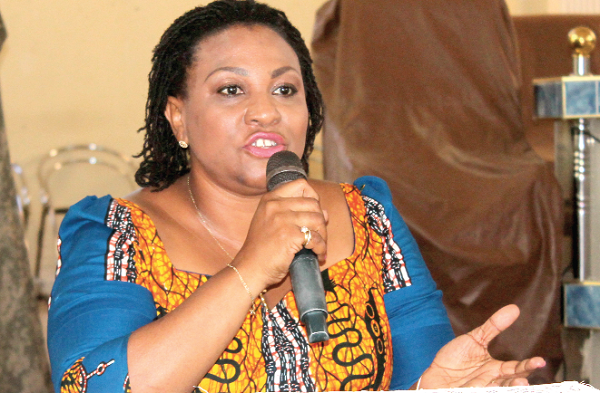
Prioritise personal safety to curb COVID-19
The National Commission for Civic Education (NCCE) has urged the people to prioritise personal safety as they go about their economic and political activities, especially in the run-up to the December 7 elections.
The Chairperson of the commission, Ms Josephine Nkrumah, who made that call, said people must not see the gradual easing of the coronavirus disease (COVID-19) restrictions by the government as a licence to act irresponsibly, since that could endanger their lives and affect the country.
Advertisement
In an interview with the Daily Graphic, she said sustaining the gains made in the fight against the pandemic required collective responsibility and strict adherence to safety protocols, such as the proper wearing of nose masks, regular handwashing with soap under running water and maintaining social distancing in public.
"The responsibility is now shifting from the government instituting restrictive measures to ensure the safety of citizens to government saying that ‘I am giving you back the freedom you had, but these freedoms come with increased responsibility for every individual to help in the fight against the pandemic’," she added.
COVID-19 data
Ghana's COVID-19 status as of last Sunday was 42,210 confirmed cases, 231 deaths, 40,147 recoveries and 1,832 active cases.
The country recorded the first two cases of COVID-19 on March 12, this year, and since then the government has taken a number of measures to prevent the spread of the virus and also manage reported cases.
The immediate measure taken by the government was the banning of all forms of social gathering, including the halting of religious and political activities, the performance of public funerals, as well as the closure of schools.
The country's borders were also closed, along with the capping on passenger intake by commercial vehicles.
That was followed by the partial lockdown of Accra, Kumasi and parts of Kasoa, a measure that was meant to halt the spread of the COVID-19 and facilitate contract tracing and testing for the virus.
However, since May, the government has been engaged in a phased easing of the restrictions.
For instance, final-year students have been allowed to go back to school to finish their academic courses, churches can now fill their chapels with congregants, while maintaining social distancing, and commercial vehicles have also been given the green light to fully load passengers.
Concerns have, however, been expressed over the easing of the restrictions, as some people are not wearing the nose masks, while others are said to be breaching the social distancing protocols, especially at political gatherings.
Against that backdrop, Ms Nkrumah called for collaboration among all stakeholders to step up the sensitisation campaign to curb the spread of the virus.
Focus
She said the NCCE would focus more attention on educating members of the public on how to protect themselves from contracting the virus.
"We are speaking to the Ghana Private Road Transport Union and other transport organisations about how to ensure the safety protocols. Drivers of public transport must be made to enforce the wearing of nose masks as they take responsibility for their lives," she added.
Read also:
Sex and coronavirus: How to have it safely
COVID-19: 38 FDA staff recover from disease
Coronavirus: Seven Zimbabwe babies stillborn in one night at hospital
Elizabeth Ohene writes: Coronavirus - How it turned the tables on Ghana's diaspora



